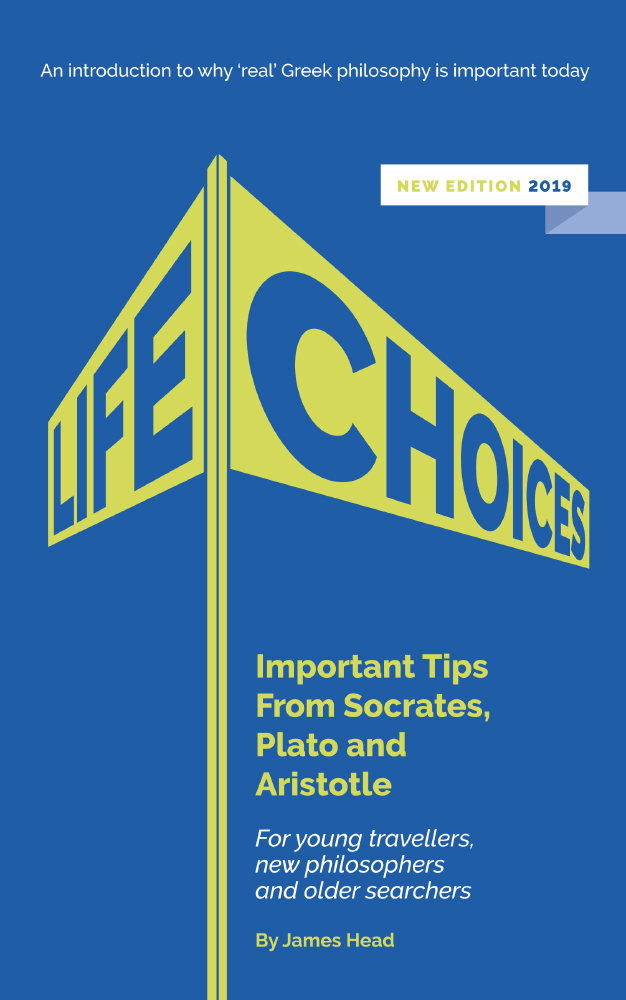Is
the Big Bang (or Big Blob) Theory Still the Best Scientific
Explanation ?
[These
short paragraphs above I hope will be sign posts for young
travellers, new philosophers, and older searchers to start an
enjoyable and possibly on going investigation into what the universe
really is; and what our place and purpose is within it.]
If
we want to know what our place is in the universe and whether we have
some purpose as well as place; then from time to time all new
philosophers should spend a little time at least on a regular basis,
considering how the universe came into existence and what our place
is in it.
Quite
often people start such a process of investigation by considering the
very big and cosmological theories put forward by both science and
established religious traditions. It seems to me that all these
theories of which there are many can be grouped into just four or
maybe five main categories or types. I would like to outline these
categories very briefly to you now and would welcome your suggestions
and comments, especially if you think I have overlooked any category
that we should included.
1. There
is the possibility at least, that the universe is eternal and
unchanging. What I mean by this is a that the universe had no
beginning and will have no end. It always was and it always will be
the same. Well I am going to rule this possibility out straight away
in my own mind, because I know that stars come to an end and go
supernova, scattering their dust across vast distances in the
universe and that new generations of stars are created from this
dust. I also know that the galaxies are moving outwards from us - or
so they say; so perhaps I should be cautious about saying I 'know'
this – when I have only 'heard' this. So even if the universe is
eternal, and always was and always will be, it is certainly changing
and evolving as time passes by.
2. Let
us also say that one possibility is that the universe is eternal,
but it is changing and always evolving. If this is the case, and I
am certainly not suggesting that it is; then we need to ask
ourselves a few further questions in order to clarify things;
or perhaps give this suggestion a few sub-categories:
a)
Did this eternal yet evolving universe have a beginning, and will it
have an end?
b)
Was there a beginning, but will there be no end?
c)
Was there no beginning and will there be no end?
d)
Was there no beginning, but will it have an end at some point?
3.
My third main category is that the universe came into being at some
point in the past. Again I would like to suggest two further
questions for contemplation to clarify this:
a)
Was it made from something? (......but then what was it made from -
just smaller bits of something, in which case where did the little
bits come from? This then gets us no closer to understanding really
where the universe came from. It just peels another layer off the
question we are trying to answer; like peeling another layer off an
onion
b)
Was it made from nothing? (.... but how can something be made from
nothing at all – not even specs of dust? ) Is there really such
a thing as 'nothing' in science?
4.
From category 3 b above there seems to be the possibility at least
that the universe was suddenly made from nothing in some kind of
miraculous way. My two sub categories (or rather further questions to
ask oneself) in this case are
a)
Was there was some divine or mystical intervention as suggested by
various religious dogmas and spitual paths through the ages?
b) Was
there was some kind of scientific, albeit metaphysical and not
understood yet, explanation that caused the universe to be created in
the past, but created from nothing. Keep in mind - that there is a
whole line of scientific inquiry exploring what 'nothing' actually
is. (Apparently, according to many top scientists, nothingness is a
very strange place and does not really exist, however well we create
a vacuum. There will always be electrons appearing from nowhere and
then disappearing again to goodness knows where. Books have been
written by top scientists about what 'nothing' actually means.
c)
Thirdly, under this main heading of the universe being made from
nothing; we could I suppose consider at least a combination of my two
previous sub categories above that the universe was made from nothing
by some divine or at least intelligent artificer or intelligent being
- but of course still adhering to basic scientific principles whether
we understand that these principles or not yet.
5.
Finally, we must of course mention the prevailing main scientific
theory at the moment being the 'big
blob' theory - or sorry - I meant to
say 'big bang' theory.
Essentially, this theory suggests that there was a singularity
(whatever that is - but I understand it is as a big blob of very
dense stuff or matter) and that this blob suddenly exploded in some
unexplained and miraculous way, and gave rise to the universe and
everything within it. To make the mathematical equations fit,
supporters of this theory need to assume that space and time did not
exist before this miraculous explosion of 'the
blob' occurred.
My
only problem with this theory, is where did the big blob come from,
and did this big blob not exist in time and space before it went
'bang' ? For me, if you are not explaining where the blob came from
then once again you have not got to the heart of the onion; and are
only taking off another layer. You are merely looping back into my
earlier third category above - that the universe was made from
something, in this case a big blob, and not a little bits of dust or
rock or whatever. So for me the big blob or big bang theory does not
really get the heart of the problem. What do you think?
The
above is my first group of first considerations that I would
encourage any new philosophers to contemplate as part of their
inquiry into the creation of the universe. Certainly, my main list of
categories above still omits some important issues that we need to
consider.
These
secondary but important considerations include:
a)
When we think of the creation of the universe we tend to think of it
in purely material ways; e.g. when did the rocks, dust, planets, and
stars come into being? However, there are things in the universe that
have no material substance such as radio waves, sound waves, heat and
other forms of energy etc. Some people would also include 'ideas' in
these non material but very real items that do not have material
substance. These non-material things are important and usually we
have no hesitation in saying that they exist as well as rocks stones
planets etc. So the question is did the material and immaterial
universe come into existence at the same time. Another way of looking
at this would be to clarify a little exactly what we mean and
include in the term 'universe'
b)
Another extra complication with my above list of the possible
explanations for the existence of the universe is, that like most
people, I have looked upwards to the stars and cosmos when thinking
about this, and seem to have only considered the very big and
'cosmological' ways that the universe may have been created. One
cannot really get a real grasp on how the universe was created I fear
without also having an understanding and looking at the very small
and mysterious world of quantum physics and the very small particles
that are the basis of every material thing around us. As philosophers
investigating how the universe was created, does it have any purpose,
and what the place of the human being is in that universe; we are
obliged to also have some basic knowledge at least of what an
electron really is; and importantly, what it really is not. We must
have some understanding through investigation of he very small
as well as the very big.










